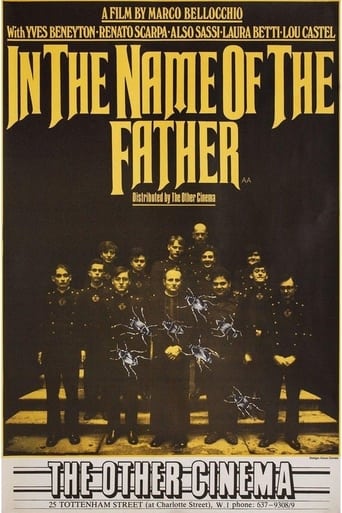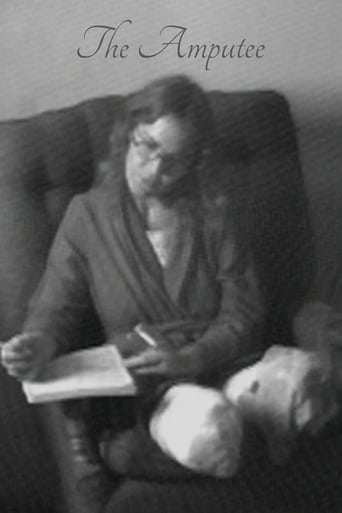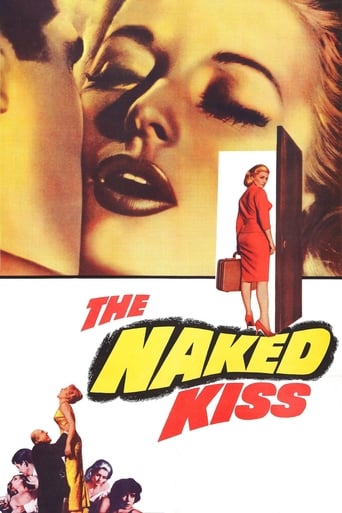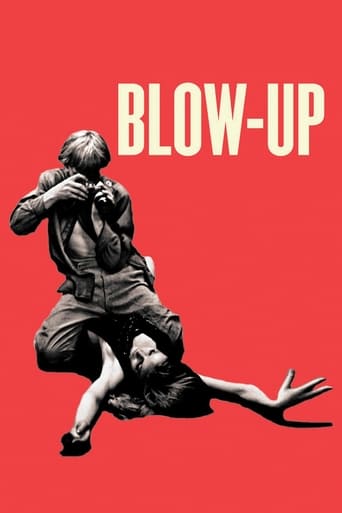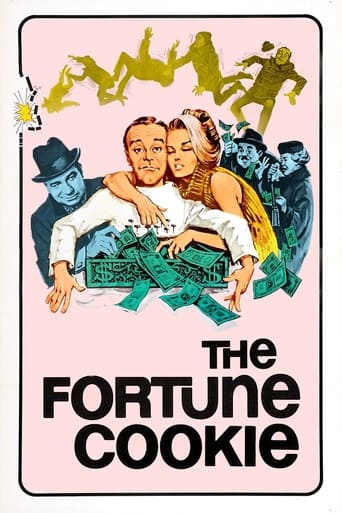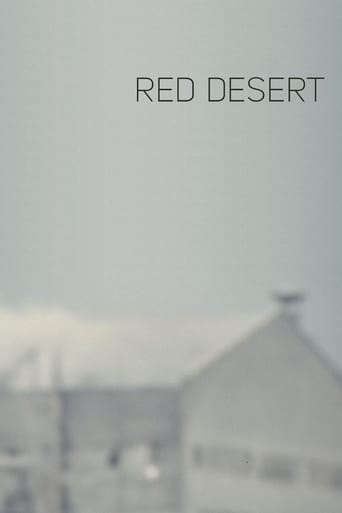


Red Desert
In an industrializing Italian town, a married woman, rendered mentally unstable after a traffic accident, drifts into an affair with a friend of her husband.
-
- Cast:
- Monica Vitti , Richard Harris , Xenia Valderi , Rita Renoir , Bruno Scipioni


Similar titles

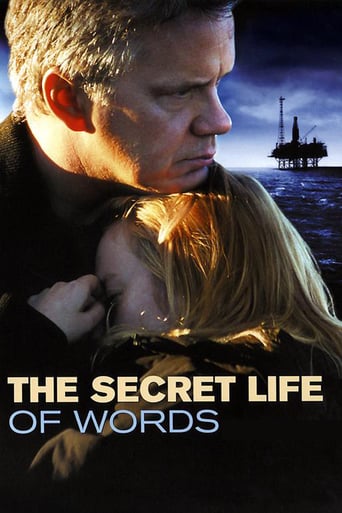
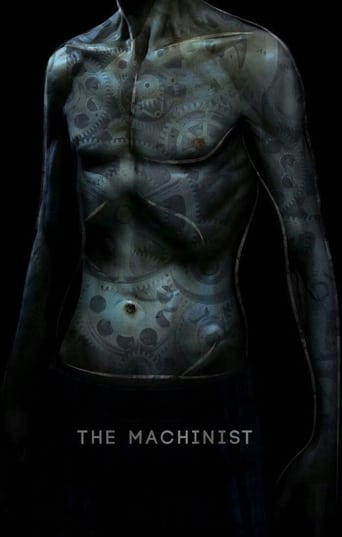
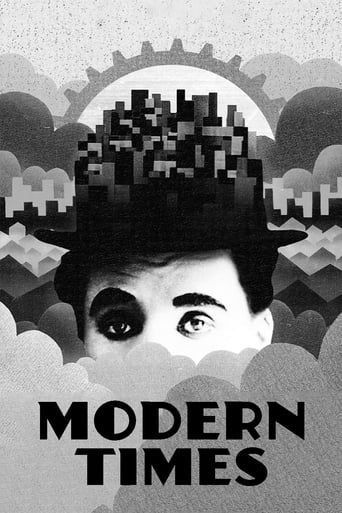
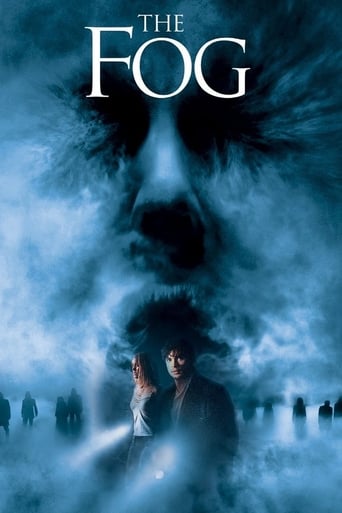


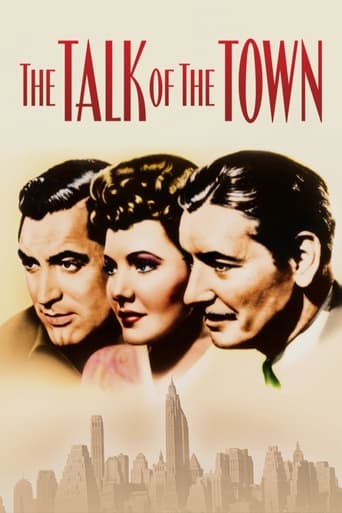
Reviews
At first rather annoying in its heavy emphasis on reenactments, this movie ultimately proves fascinating, simply because the complicated, highly dramatic tale it tells still almost defies belief.
Let me be very fair here, this is not the best movie in my opinion. But, this movie is fun, it has purpose and is very enjoyable to watch.
The movie turns out to be a little better than the average. Starting from a romantic formula often seen in the cinema, it ends in the most predictable (and somewhat bland) way.
By the time the dramatic fireworks start popping off, each one feels earned.
The structure of this film and the motifs are outstanding. Once again the New Wave cinema presents us with the sad generation, unable to move forward, even though they have everything. The overbuilt city is sinking into degradation. Pollution is everywhere, including the minds of the characters. Monica Vitti is superb, portraying a woman who is going to crack soon. She has been in a car accident and it has stolen her feeling of safety. As a matter of fact, if I were asked to be around her for more than a few minutes, I'd start talking to myself. Her Giulliana is about as unapproachable and messed up as any character ever in the cinema. She is bouncing off the walls. She cannot smile. Everything she does is tense. Richard Harris plays her new love interest, but why he would want to spend more than five minutes with her is beyond belief. He is a mess himself as are all the principles in this film. Mr. Antonioni, is anyone happy in your films? This ends the quartet of features dealing with existential angst.
Antonioni's Red Desert asks us to consider the accommodations and adaptations of the newly successful Italian upper middle class to the changing social, economic and environmental conditions of post-World War II industrialization. More particularly, this important film focuses on the insecurities and honest fears of the middle-aged Giuliana, absorbingly portrayed by Monica Vitti, as she struggles with her own imbalances in the face of a rather sterile marital relationship, shifting social mores and a disturbing and perhaps unhealthy industrial landscape. But the emotionally detached and borderline amoral actions of the supporting players, limited in scope by Antonioni's and Tonino Guerra's script, are also significant to the theme. It is a film that asks how we examine, perceive and choose to act in the world around us each and every day as technology and economic "progress" inexorably make life more complex and disruptive, even as the opportunities for material experiences and goods - for good or ill - increase. Giuliana's mental instability predates the start of the film. A car accident of uncertain causation and her recovery - or lack thereof - in the ensuing hospital stay is unveiled early in the film for context. But Giuliana is clearly not well. She is rightly fearful of the daunting (but geometrically interesting and colorful) industrial structures and the horrifying waste contaminants that are despoiling the land, water and air near the home she shares with industrial manager husband Ugo (Carlo Chionetti) and son Valerio. Ugo, while concerned, appears resolved to maintaining a sort of status quo disequilibrium that he thinks may be manageable. Meanwhile, an industrial entrepreneur, Corrado Zeller (a well-dubbed Richard Harris), acquainted with Ugo, enters the scene, wanting to hire labor for a venture in Patagonia that he is pursuing with half- hearted intensity. He soon begins to shadow Giuliana - and she him - in plain sight during Ugo's workday. These scenes tend to drag a bit as Corrado's undisguised but not physically aggressive pursuit of her reveals a man of surprisingly low self-esteem and an admitted lack of understanding of life. Meanwhile, his interest in her does not assuage her desire for more security and self-awareness in a world she cannot seem to grasp. As their attentions to one another increase - but only slightly, through most of the film - Giuliana's emotional comfort does not progress apace. In fact, the scenes become more dominated by fog and the clouded movement of large, nondescript ships as her connection to a coherent universe continues to slip away. Her confusion is only increased by this strangely kind and attractive figure who, while appearing to empathize with some of her fears, ultimately offers no true solution to her discomfort. In fact, we are left believing that Corrado's actions were more facade than truth, and Antonioni subtly suggests that Giuliana's realization of that fact leads her to a more honest and healthy vision of the odd world she inhabits. One might conclude that she has struggled, and come to an adaptation that might work for her. We are left hopeful.The minor characters in the film, and for purposes of this argument I would include Corrado and Ugo, despite moments of seeming sincerity, are depicted as shallow and accommodative. They are not adapting to the contradictions of modernity, but rather letting their moral principles weaken in the face of the acceptability of money as a standard of righteousness. Antonioni illustrates this through a brilliant scene in a waterfront party shack that is owned by one of Ugo's associates. The flimsy walls are painted in bright colors in this tiny hovel, a metaphor for the shallow excitement and weak moral base that substitutes for honest human companionship in what appears to be a tentatively-engaged bourgeois partner share. Giuliana at least realizes that adaptation to this rapidly changing, increasingly complex and difficultly realized world demands soul-searching and discomforting effort. The others have merely acquiesced to a life devoid of meaning.Antonioni is saying that scientific, technological and most significantly material economic progress, while attractive in some ways - and allegorically represented by the cinematography of Carlo Di Palma, which brilliantly pervades this film - will inexorably present challenges to the human desire to find honest and caring companionship when relationships and a sense of place are fluid., It will push us to come to grips with and ameliorate the destructive aspects of that material progress. A rise in mental instability and addictive or morally suspect behavior may well be a nasty companion to these pressures and challenges. This film, made in 1964, presents a view of modern life that still resonates. View it more than once, and gain more appreciation on each occasion for the power of film to inform our lives.
I love Antonioni for these flickering realities. In Blowup he gave us memory as the chimera of the mind, the formation of human suffering. Going backwards to The Red Desert, I find that the mind hasn't been transcended yet, nonetheless we get a beautiful paradigm on the acceptance of that suffering as a fundamental condition of life. This is not an ultimate reality, but at least it's a first awareness of the appearance of suffering.We have the fragile, erratic, woman with the fractured soul as main character here, learning to be whole again. Only Bergman had done this before, but Through a Glass Darkly is literary and it pales when we see it next to the power of Antonioni's cinema. People like Polanski and Lynch would go on to make similar films with varying degrees of insanity permitted by surreal devices, moving them inside the fracture, the brilliance here is how the movie hops in and out of it, swapping and shaping realities.This is true first in the marvellous embedded story the mother narrates to her little boy, we see this unfold in her mind's eye (not the boy's). The island world there is peaceful and contained, sufficient and whole unto itself. Now and then mystery beckons and the girl in the story swims out to it, but she doesn't lose heart when it eludes her. It's in the nature of things to elude us. I like how these mysteries are vaguely poetic, a saiboat and an unseen song, as opposed to the violent omens encountered in David Lynch.I discover this again in the bedroom scene where Corrado coerces a shaken Guiliana into sex, a masterstroke by Antonioni because it's an uncomfortable coupling to see, yet not vulgar or perverse. Guiliana submits to the sexual advances, and for a moment the room turns inexplicably pink, like the sand in the island of her dreams. The wonderful ambiguity of this is that it's never apparent whether the fantasy is where she flees for safety or if she permits sex in order to reach it. But that flight into imagination lasts only for a while and does not change the world, the bedroom is still the same.I love how, with hardly any consideration or concession made to how a story ought to be explained, Antonioni sketches in a bleak barren landscape that serves as projection of tormented minds the traces of human souls aching for connection, seeking a unity of bodies that soothes in the yawning nothingness of the universe. He does not wait for a god to make his presence felt or perceive the defeaning silence as proof of damnation, but rather ushers his characters on a path towards self awareness.Guiliana's torment then begins with her false perception of the world. When she hears a scream that her husband didn't, she's shaken, desperate to prove it to herself, unsure if she did hear a scream after all. Outside the cabin, the mist hides her company from her eyes and she despairs more. In the mind's fixation to a world we think should be unchanging and always grasped, the world itself begins to fade.When they finally separate, Guiliana pushing him out because now she knows he can't help her, knowing also that the courage must come from inside and that she must not cling to things or people to get through the day, Corrado leaving with hardly a word, knowing at the same time that he can't help her either, it's like a firework of cinema.The final scene, where Guiliana explains to her son about the poisonous yellow smoke and how the birds have learned not to fly there, could be saying too much about her newfound awareness because we can infer it from the scene with the Turkish sailor, but I like how Antonioni bottles the sentiment in a gentle metaphor. As humans we may be swimming alone in a sea of suffering, but we can learn to tranquil the hand that makes it navigable.The one touch I have a hard time swallowing, is that Antonioni doesn't trust us to understand who the "girl in the hospital" was, making Monica Vitti tell us. Perhaps the film is enough of a drifting haze as it is and he wanted to drop an anchor there, to make at least something certain.It's the acceptance of suffering as part of life that matters here for me, how Antonioni makes cinema with it is only the masterstroke. As with films he made later, his cinema is spiritually important to me because conceptual understanding of ideas he presents or the appreciation of the visual vocabulary, which is rich in color and texture like few directors managed, cannot substitute for the final, tangible, experience of living through it all.
Red Desert is a beautifully shot film about that ever-modern problem of alienation in the face of progress. Michelangelo Antonioni is as interested in obscuring images as he is capturing them: he periodically drifts his action out of focus, and in one of the film's most masterful scenes, places a dense layer of fog between his principals and his camera, fading them into just barely visible silhouettes. Antonioni also demonstrates a masterful command of color: his stark yellows and reds jump out from his gloomy grey world with all the menace of a poisonous animal. As the film reaches its climax, it becomes increasingly dissonant and disorienting--in all the best ways, of course. Red Desert is a great film; it captures the common angst of modernity with an uncommon mastery of Mise-en-scène and cinematography.

